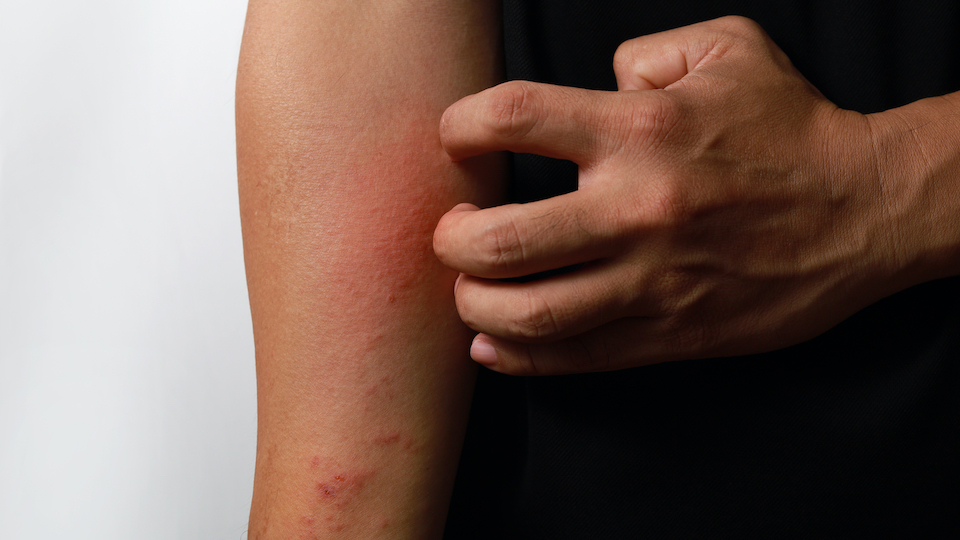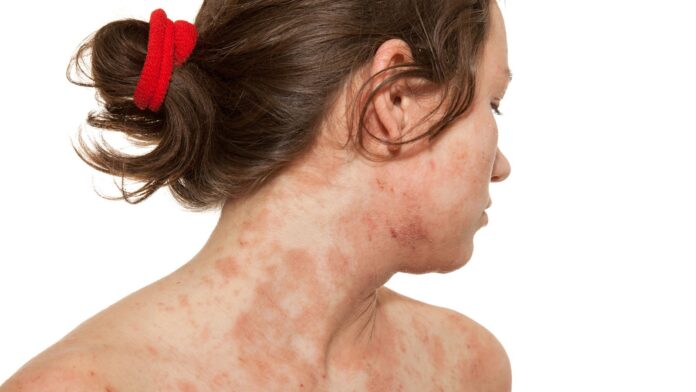Living with eczema can be difficult, both physically and mentally. It can affect a person’s quality of life, making everyday tasks more challenging than they should be.
Mental health is an important factor to consider when dealing with eczema, as it can directly influence how the condition is managed. In this article, we will explore the link between eczema and mental health and look at ways to address both for a better quality of life.
We will examine why proper management of symptoms is essential to cope with the physical effects of eczema while also addressing any accompanying mental health issues that may arise as a result of living with this condition.
With an understanding of how these two areas interact, we can develop strategies for achieving better overall well-being despite its challenges.
Strategies for Managing Stress and Anxiety Related to Eczema

When it comes to managing stress and anxiety related to eczema, several strategies can be used to improve quality of life. It is important to be aware of any triggers that may lead to flare-ups, as this awareness can help you take proactive steps toward reducing the severity or duration of an outbreak.
Developing positive coping skills such as mindfulness and relaxation techniques can also be hugely helpful in managing anxiety levels during challenging times. Additionally, finding ways to stay connected with family and friends through virtual means is another great way to maintain emotional support when physical contact isn’t possible.
Finally, seeking professional advice from mental health professionals if needed can provide a safe space for individuals who need further assistance in overcoming the stress and anxieties associated with eczema. With these strategies, one can better tackle both their skin condition and mental well-being while striving toward achieving a higher quality of life.
Coping with the Physical Symptoms of Eczema

Living with eczema can be difficult and uncomfortable, both physically and mentally. To manage your eczema effectively, it is important to address both the physical and mental health aspects of the condition.
Coping with the physical symptoms of eczema requires you to understand how they arise and what steps you can take to reduce their severity. Several practical strategies can help alleviate the physical symptoms of eczema: moisturizing skin regularly; avoiding potential irritants such as fragrances, harsh soaps, or detergents; wearing loose-fitting clothing made from natural fibers like cotton; using a humidifier in dry climates; taking lukewarm baths instead of hot showers; applying cold compresses or wet dressings if needed for inflammation or itching; using steroid creams sparingly as directed by your doctor to treat flare-ups when necessary.
It’s also important to pay attention to any changes in your lifestyle that may affect your skin condition, such as stress levels, diet, sleep patterns, and exercise habits. Keeping track of these factors will help you identify which ones contribute most significantly to flare-ups so you can adjust accordingly.
Finally, don’t forget about consulting a dermatologist who specializes in treating skin conditions like eczema – they’ll be able to provide additional guidance on how best to manage your condition over time.
Nutritional Interventions to Reduce Flare-Ups of Eczema

Nutritional interventions can be an effective way to reduce flare-ups of eczema and improve mental health. Eating a balanced diet is important for both physical and mental health, as it helps to maintain the body’s natural defenses against inflammation that can trigger skin flares. Foods rich in omega-3 fatty acids, such as salmon, walnuts, and chia seeds, may help reduce stress levels associated with eczema by helping to regulate hormones.
Additionally, foods high in zinc have been linked to improved immune function which could potentially help decrease future outbreaks of eczema. Furthermore, avoiding processed or sugary foods has been shown to reduce inflammation associated with eczema.
Making simple changes like eating more fresh vegetables or replacing refined carbs with whole grains can lead to significant improvements over time if done consistently. Finally, reducing overall food intake during times of stress may also provide a beneficial effect on improving both physical and emotional well-being when dealing with eczema.
Conclusion

Living with eczema can have a significant impact on mental health. It is important to address both issues to achieve a better quality of life.
Taking steps such as consulting with a doctor, making lifestyle changes, and applying the right eczema cream can help reduce symptoms associated with both the physical and psychological aspects of living with eczema.
Through these measures, it is possible for those living with this condition to improve their overall quality of life by mitigating its effects on their mental health.




